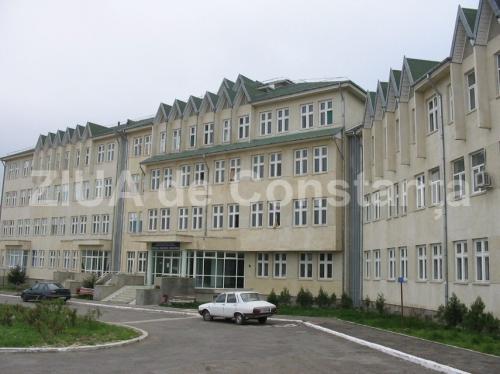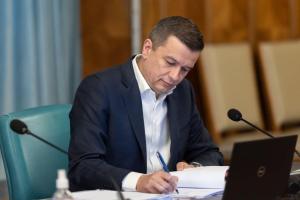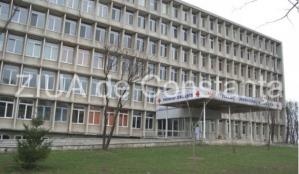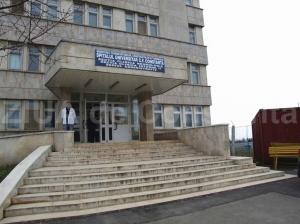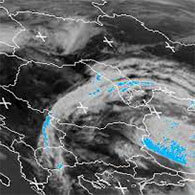Danut Culetu, Cosmin Andrei and tricky attributions
Danut Culetu, Cosmin Andrei and tricky attributions 2691
Marime text
2691
Marime text

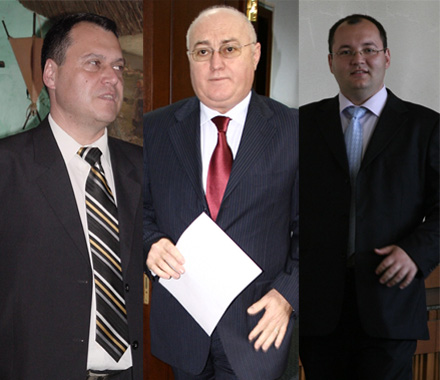 Mobility will lead the former
sub-prefect to Suceava county. Although the appointment as governmental
inspector is a regression, a lot of prefects and sub-prefects have agreed to
this position.
Mobility will lead the former
sub-prefect to Suceava county. Although the appointment as governmental
inspector is a regression, a lot of prefects and sub-prefects have agreed to
this position.
In less than one year, our county gave forth three governmental inspectors, Adrian Nicolaescu, Dănuţ Culeţu and Cosmin Andrei, all of them superior public clerks having worked with the Institution of the Prefect of Constanţa County.
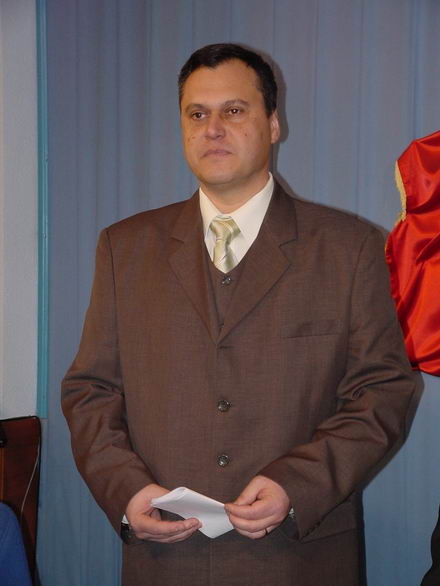 The first one transferred according
to the principle of mobility was the ex-sub-prefect Adrian Nicolaescu. It has
been almost a year since he has been governmental inspector. Nicolaescu is
working with Govern General Secretariat for technical and juridical matters. "According
to the attributions assigned by ordinance of former prime minister Călin
Popescu Tăriceanu, I am involved in the process of drawing up normative
documents within Govern General Secretariat", Adrian Nicolaescu told us.
Although the new position is actually a "degradation", the former sub-prefect
of Constanţa County
accustomed to the new circurmstances: he goes weekly from Constanţa
to Bucharest. When away from Constanţa, he does not have to worry about
accommodation and the work is remunerated the same way as the work of superior
public clerks - prefect, sub-prefect, state secretary. "It's a progress, for
sure. What I do here is closer to what I studied", said the governmental
inspector Adrian Nicolaescu
The first one transferred according
to the principle of mobility was the ex-sub-prefect Adrian Nicolaescu. It has
been almost a year since he has been governmental inspector. Nicolaescu is
working with Govern General Secretariat for technical and juridical matters. "According
to the attributions assigned by ordinance of former prime minister Călin
Popescu Tăriceanu, I am involved in the process of drawing up normative
documents within Govern General Secretariat", Adrian Nicolaescu told us.
Although the new position is actually a "degradation", the former sub-prefect
of Constanţa County
accustomed to the new circurmstances: he goes weekly from Constanţa
to Bucharest. When away from Constanţa, he does not have to worry about
accommodation and the work is remunerated the same way as the work of superior
public clerks - prefect, sub-prefect, state secretary. "It's a progress, for
sure. What I do here is closer to what I studied", said the governmental
inspector Adrian Nicolaescu
 Activated after 2 months
Activated after 2 months
More or less seriously, the former prefect of Constanţa county, Dănuţ Culeţu seems to have been forgotten by the prime minister. Although the decision of his appointment as governmental inspector position was issued two months ago, he has not been assigned his responsibilities. "I am sure that soon I will be assigned my attributions. I expect to find out what I will do and when my activity will take place", Dănuţ Culeţu mentioned. In this context, one question raises: how will he be paid, as governmental inspectors are paid based on activity timesheet and on a be-monthly report including indicators of the activity made in territory. In other words, because of the principle of mobility, Culeţu could be sent in any county, which is not so convenient to him.
"I could accept going to another county. It would be better if we were trained so that we could involve in developing programmes initiated by the Govern and in the reform of local public system", recently declared the former prefect, Dănuţ Culeţu.
With or with no connection to April
Fools' Day, yesterday's Official Journal no 209 issued ordinance no 433 signed
by Prime Minister Emil Boc, which states that governmental inspector Dănuţ
Culeţu has been sent to Suceava and has received responsibilities which are included
in the activity of the Ministry of Agriculture, and we should mention that
Dănuţ Culeţu is an economist. The same official journal also includes ordinance
no 444 of the Prime Minister, which states that the former sub-prefect of Constanţa county, Cosmin
Andrei, will be assigned a set of responsibilities. We shall see if both will
accept their new assignments or if they will give up the status of governmental
inspector, as nobody knows who will help them accomplishing their duty in the
counties they have been moved to.
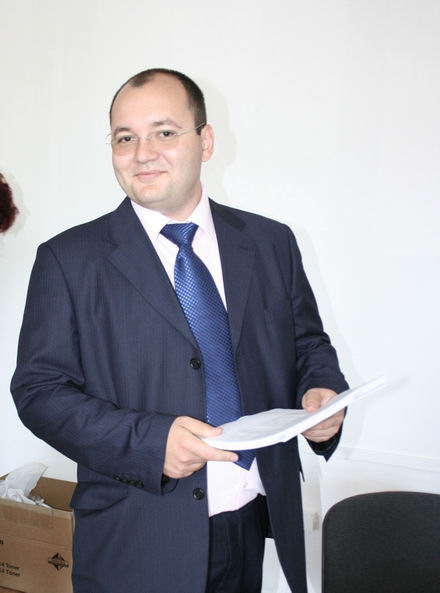 Legal provisions only on paper
Legal provisions only on paper
In 2007 the former Govern general secretary, Ilie Bolojan, announced that the structure of the Govern General Secretary will have 10 positions of governmental inspectors, and this figure was to be tripled within the next year. These governmental inspectors would be the next prefects, sub-prefects, general secretaries of ministries or of government. The number of governmental inspectors significantly augmented, but there were no promotions. In respect to the law, the governmental inspector is at enter level of the superior public clerks. Their performance and competence were to be regularly evaluated, they were to be individually tested once a year, and every 2 years a special commission was to perform a general evaluation.
Governmental inspectors coordinate complex activities, projects or programmes which are connected to Romania's status as a member of the EU, and also to strategic development priorities of the institutional and administrative capacities. They should also ensure the continuity in development and implementation of a strategic vision on a central, regional, territorial or local level, by coordinating and evaluating the implementation of relevant national and community legislation, by identifying and promoting the mechanisms necessary to respecting the principles of subsidiary character and decentralisation, good public fond use and proper governance. As usual, what is forecasted is not fulfilled and the complaints of the peopel "promoted" in these positions are, in some cases, justified.
Urmareste-ne pe Grupul de Whatsapp
 Fondul Documentar Dobrogea de ieri și de azi
Fondul Documentar Dobrogea de ieri și de azi





